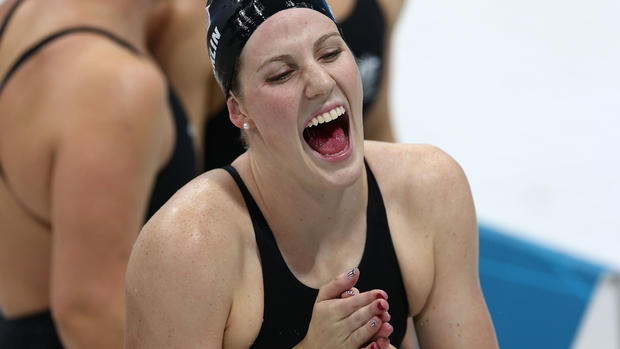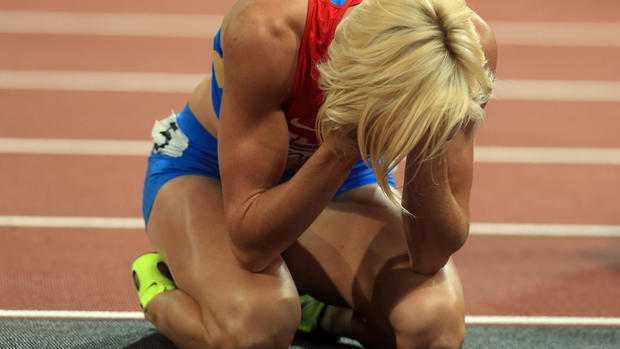Olympics: Pistorius makes it to 400-m. semifinals
LONDON (AP) - It began with a smile at the starting line.
Moments later, Oscar Pistorius took off and the click-click-clicking of carbon on the ground was all but drowned out by the 80,000 fans on hand to watch him make history Saturday. The first amputee to compete in track at the Olympics, Pistorius cruised past an opponent or two in his 400-meter heat, and by the end, the "Blade Runner" was coasting in for a stress-free success.
Typical. Except this time, it was anything but that.
"I've worked for six years ... to get my chance," said the South African, who finished second and advanced to Sunday night's semifinals. "I found myself smiling in the starting block."
U.S. sprinter Bryshon Nellum defies doctors to run again
U.S. soccer's Abby Wambach: "Cartwheels for everyone"
Katie Ledecky: Michael Phelps' race "really got me pumped"
Olympic dining: What's on athletes' plates?
Yes, this sun-splashed day at Olympic Stadium was a good one for Pistorius, a double-amputee who runs on carbon-fiber blades and whose fight to get to this point has often felt more like a marathon than a sprint.
Finally racing where he always felt he belonged, he finished in a time of 45.44 seconds, crossing the line and looking up at the scoreboard, then covering his face with his hands when he saw the capital "Q'' - for qualifier - go up by his name.
The 25-year-old runner was born without fibulas and his legs were amputated below the knee before he was a year old. His is one of those stories that is every bit as much about the journey - dramatic, inspiring and controversial - as the final result.
"I know Oscar was the protagonist in the race," said Luguelin Santos of the Dominican Republic, who actually won the heat by .4 but went virtually unnoticed. "But I love him. He's a good racer."
Pistorius has four Paralympic gold medals to prove that, but this latest trip around the track is about something bigger than that.
He waged a long fight to run in the Olympics against able-bodied opponents.
After dozens of hearings in front of hundreds of men and women in suits charged with the task of deciding whether the blades gave Pistorius an unfair advantage - then getting his country's Olympic committee to enter him into the games - Pistorius finally got his chance.
He shook hands with his opponents, crouched into the blocks, flashed that smile and then - in so many ways, it was just another race, with Pistorius among the fastest men in it.
"I just see him as another athlete, another competitor," world champion Kirani James said.
Bursting out of the crouch from Lane 6, Pistorius got going slowly, but built up steam in the backstretch. He made up the lag and was easily among the top three when the runners turned into the backstretch. He passed Russia's Maksim Dyldin and then, as all the top runners do in a 400 prelim, let off the gas over the final few meters to save energy for the next one.

